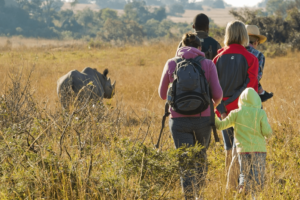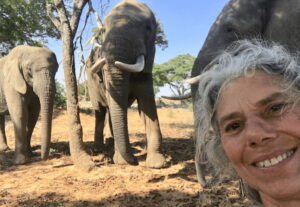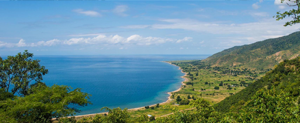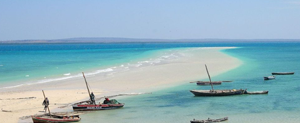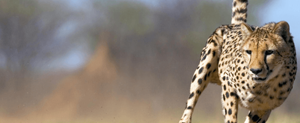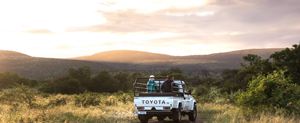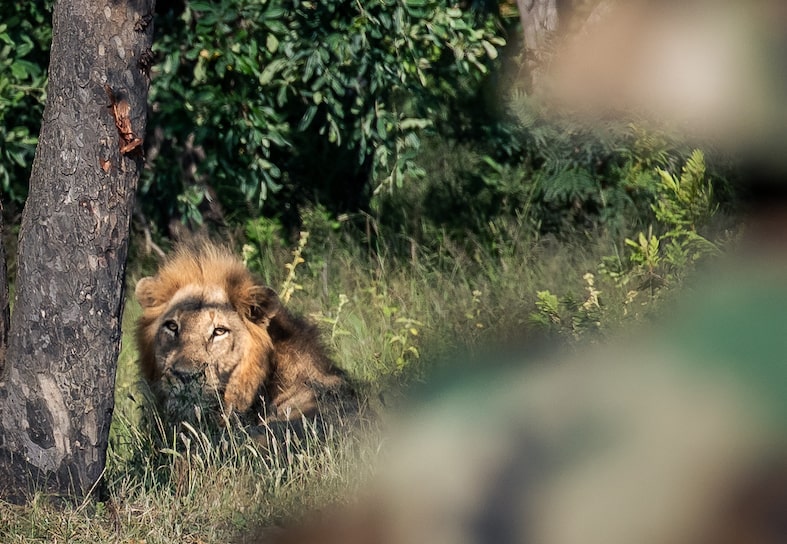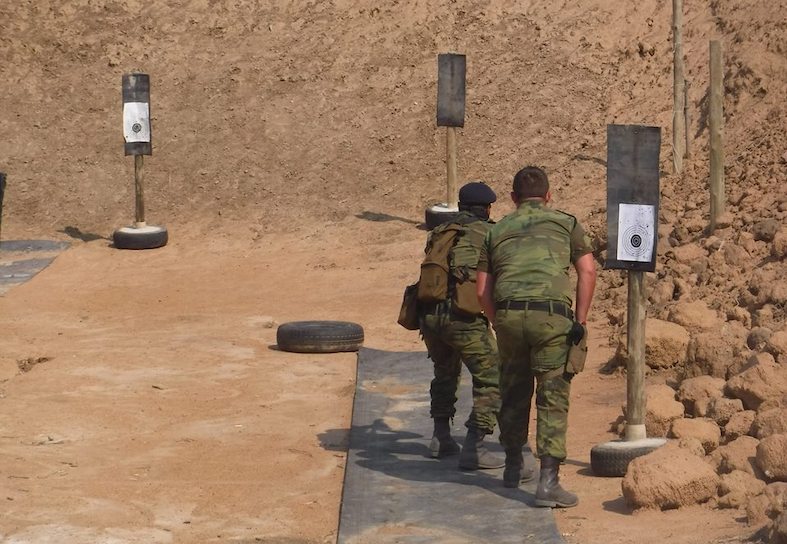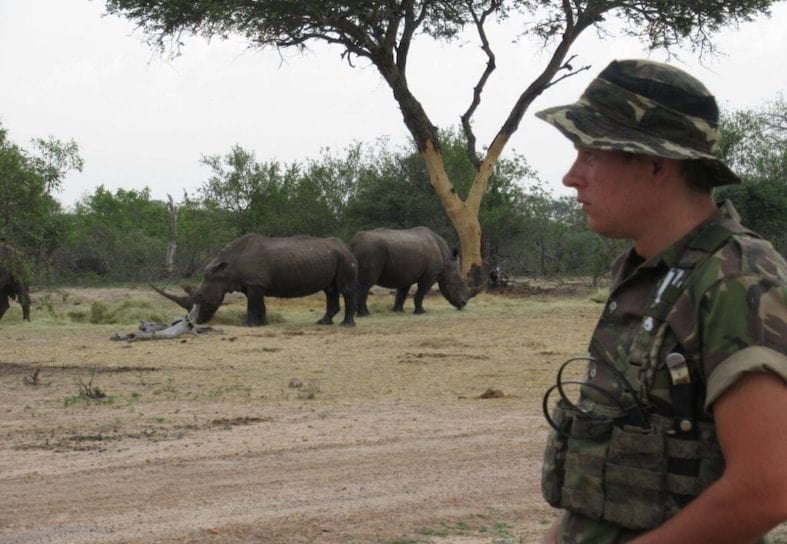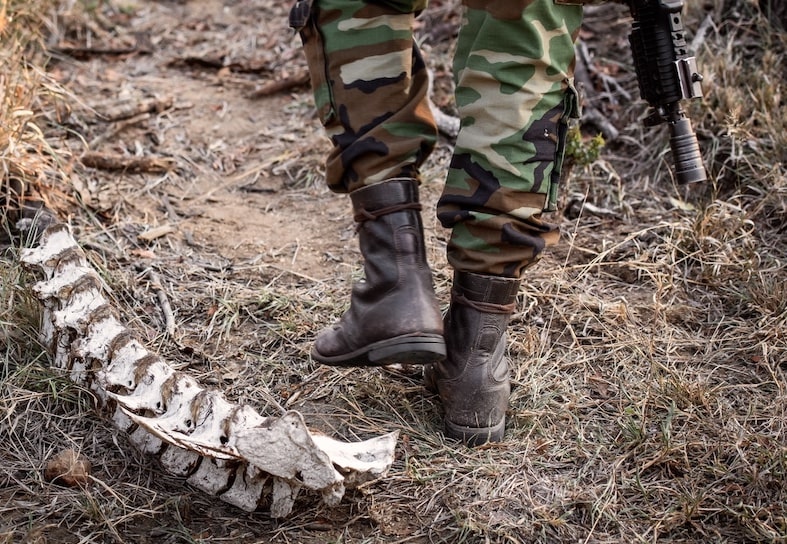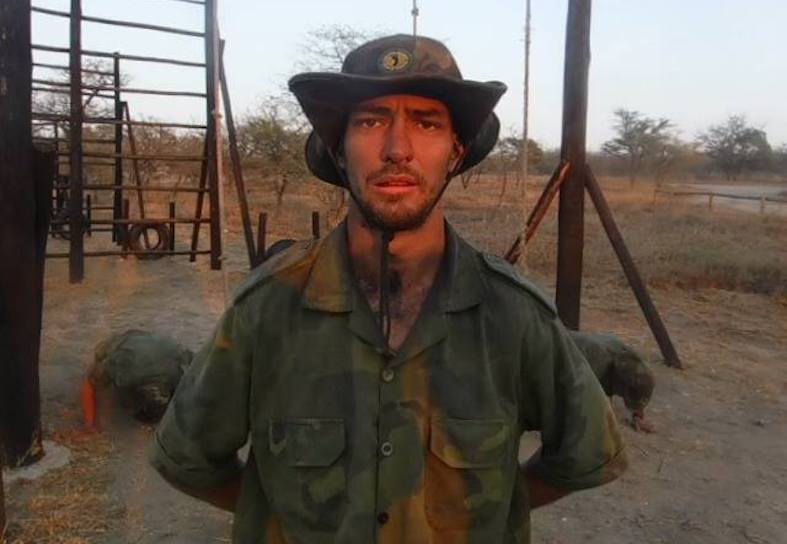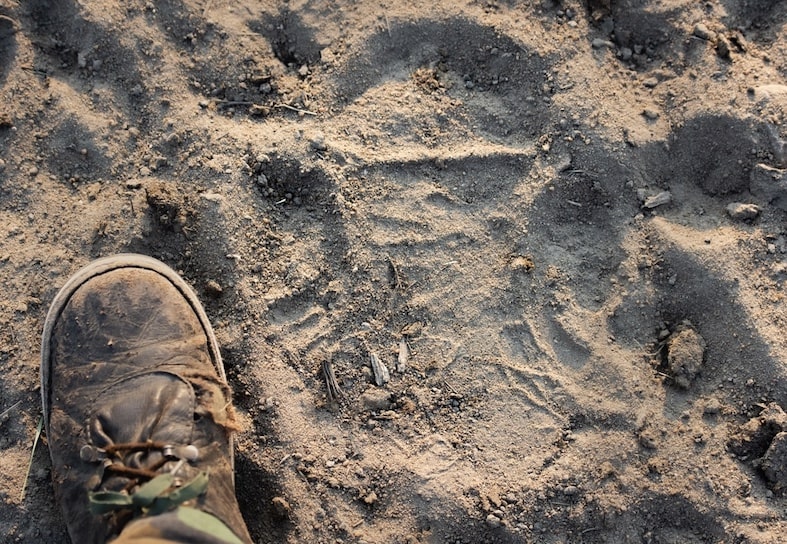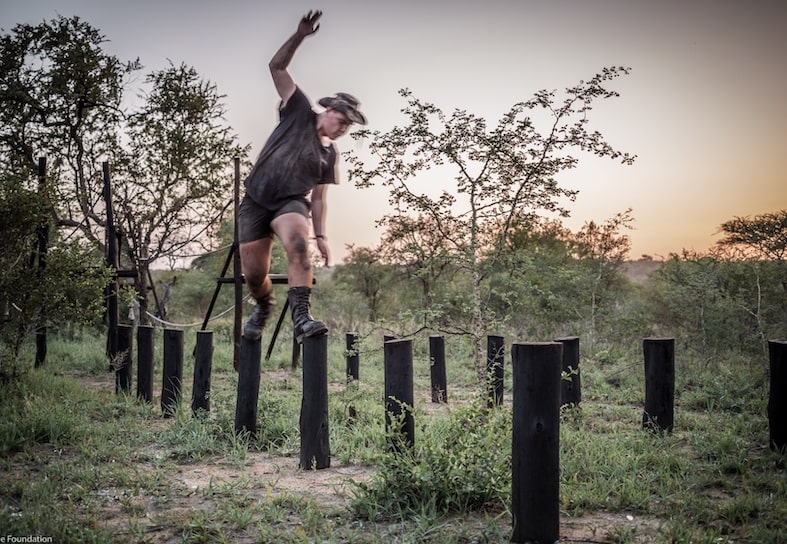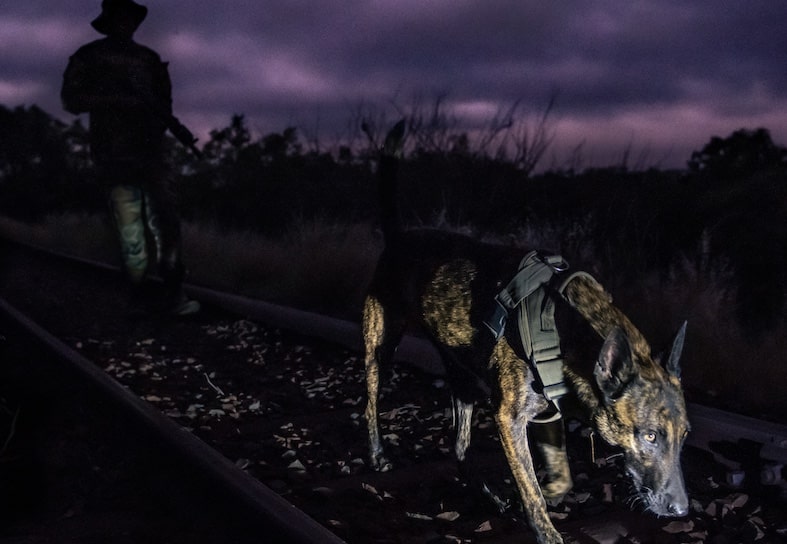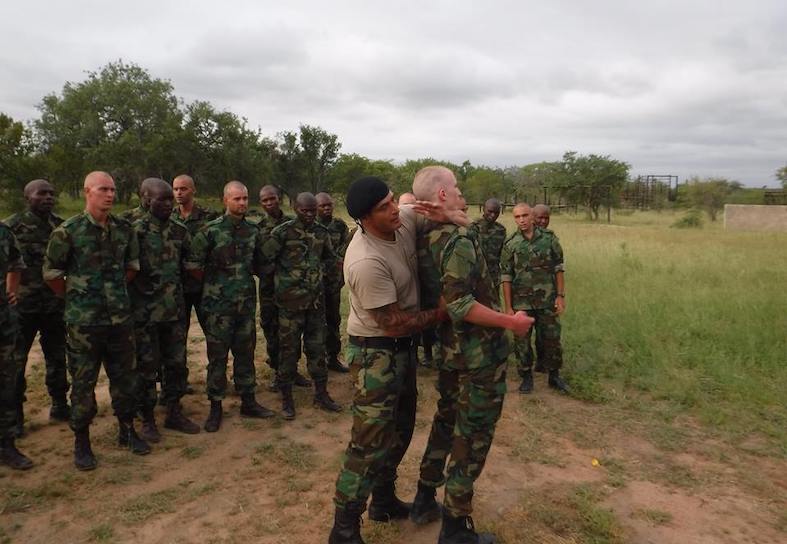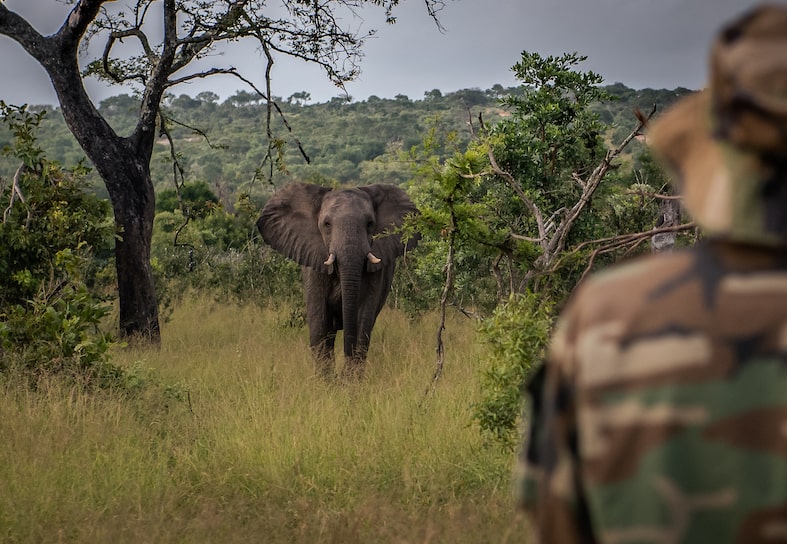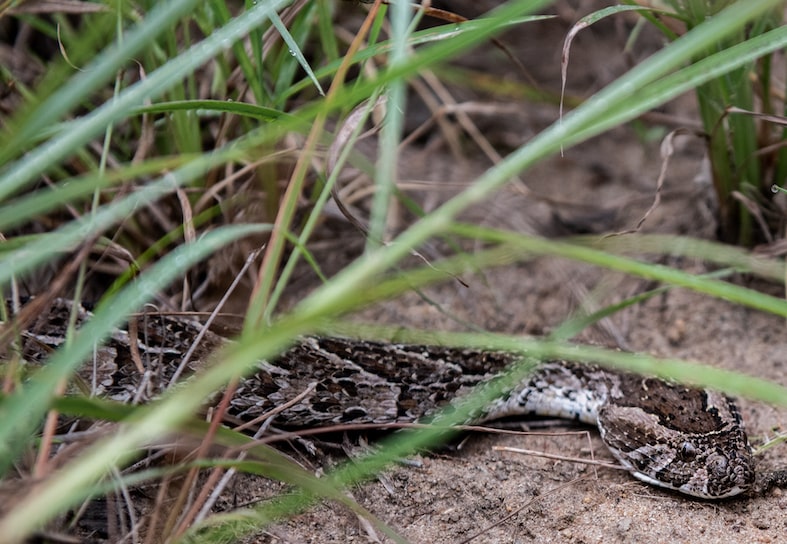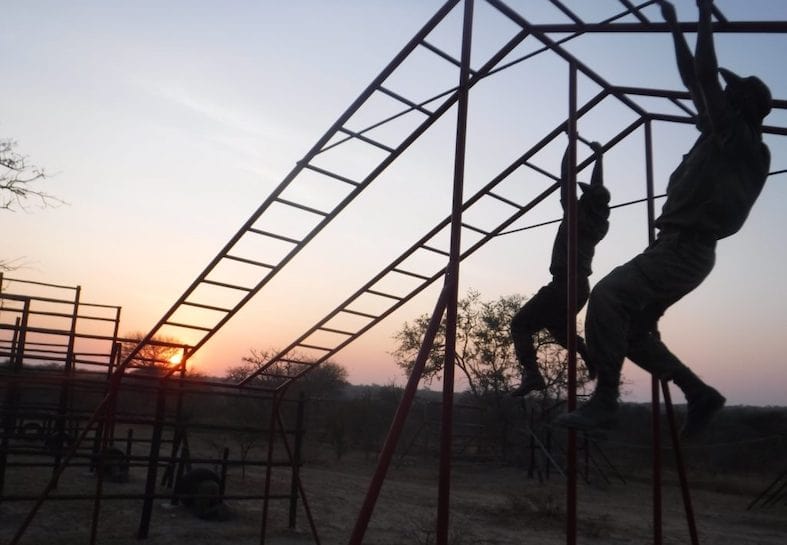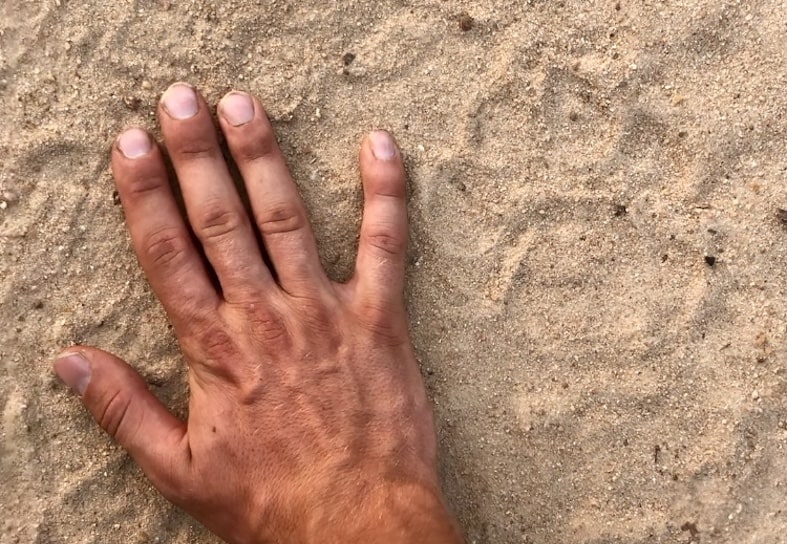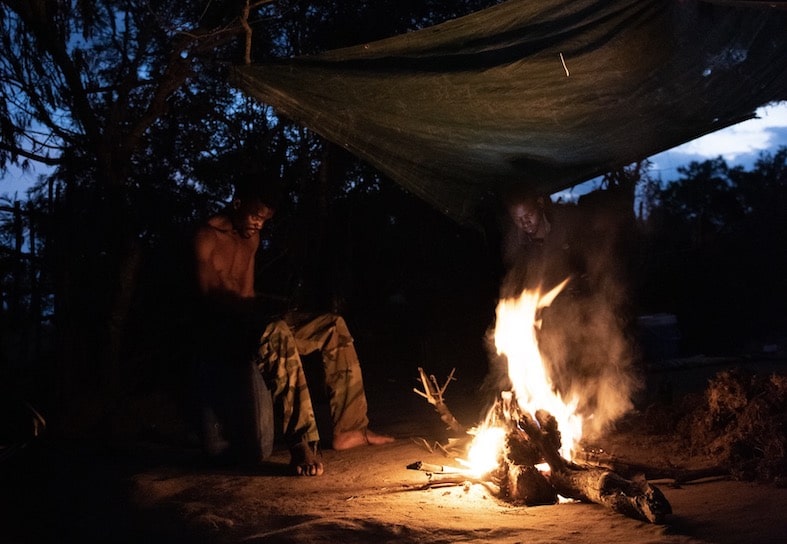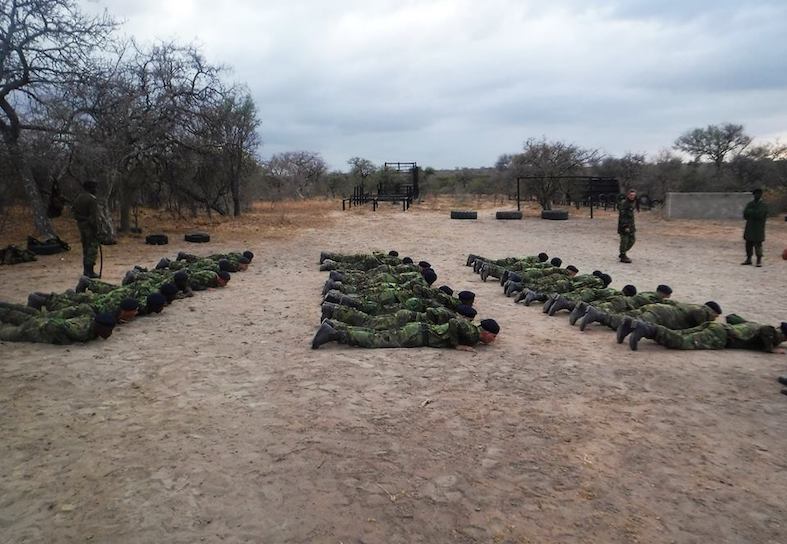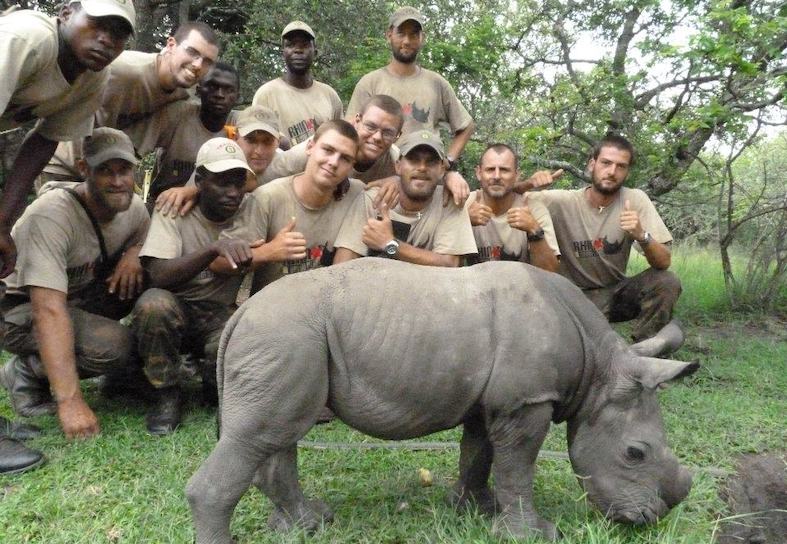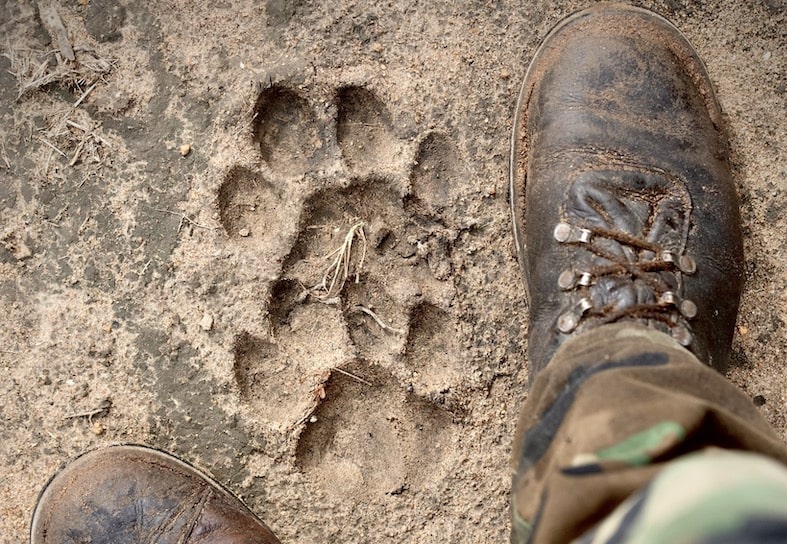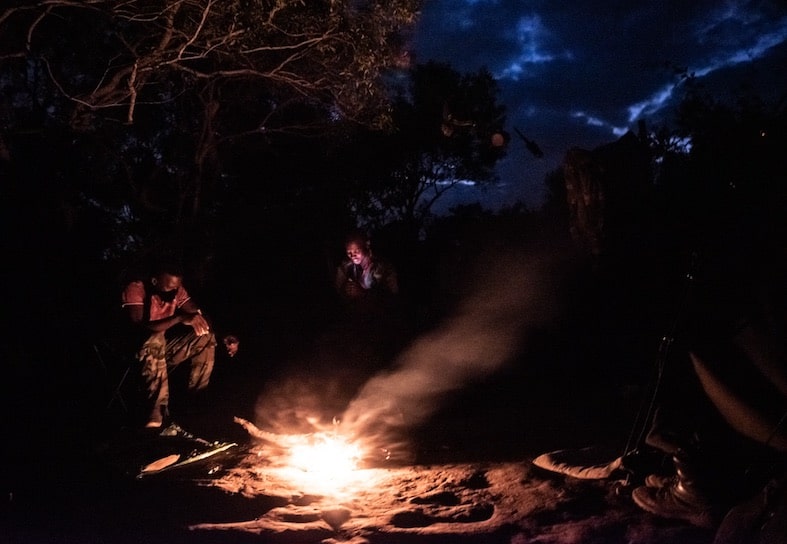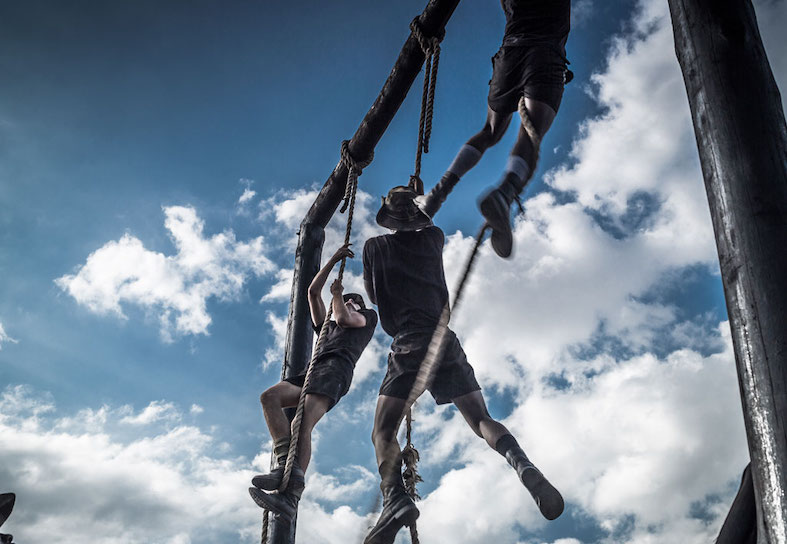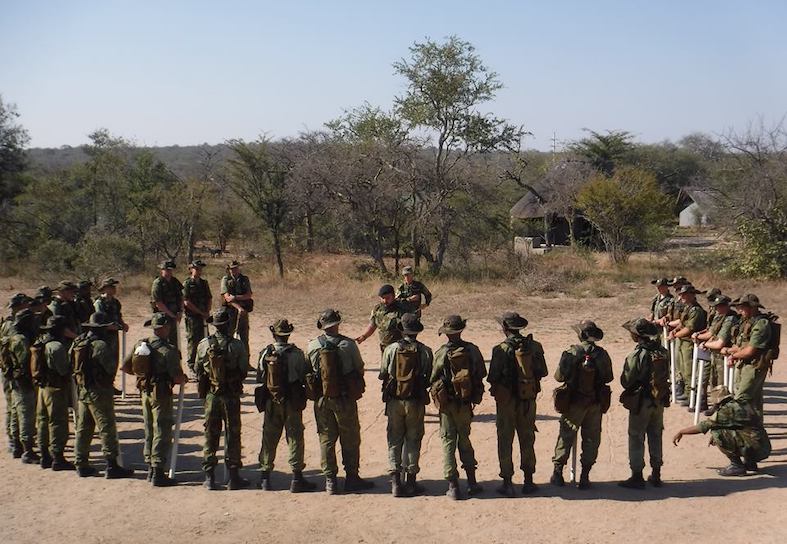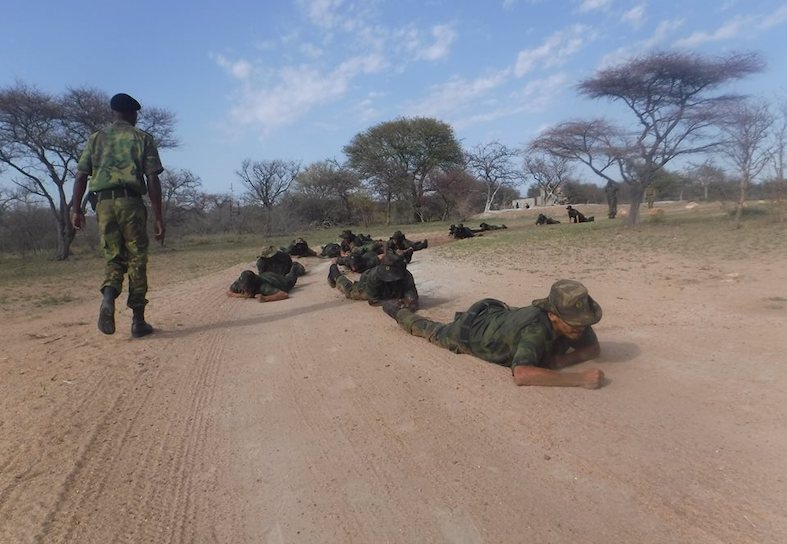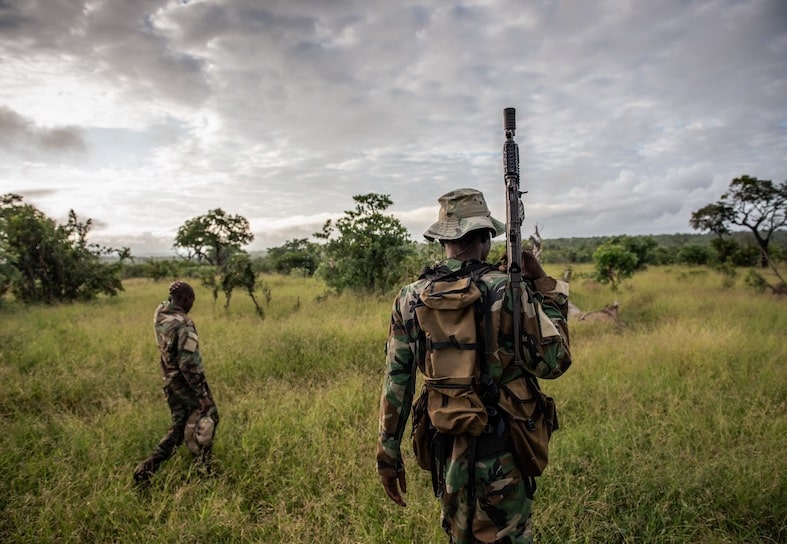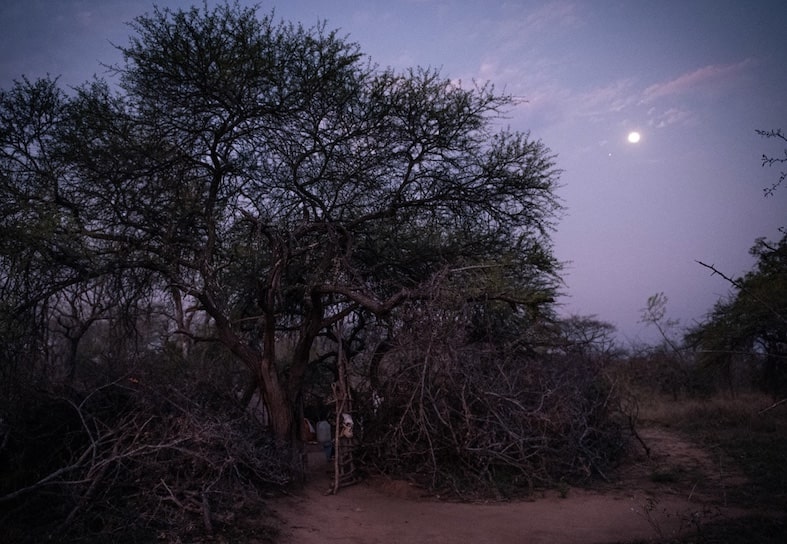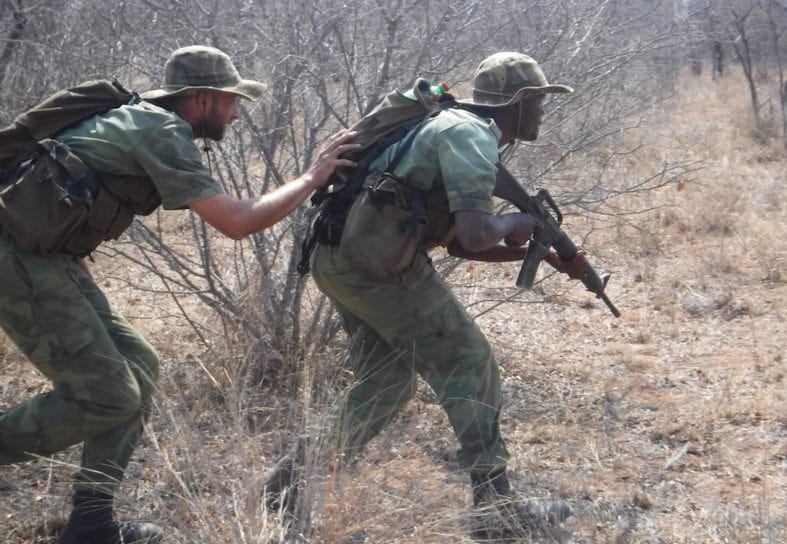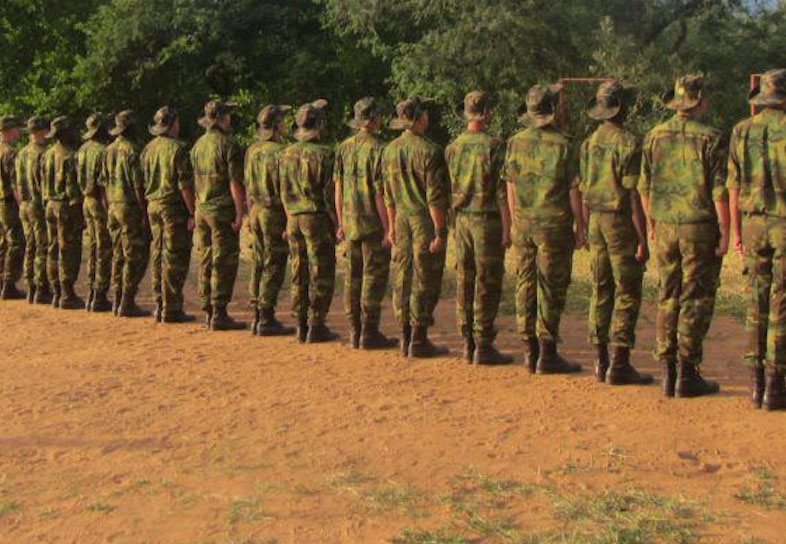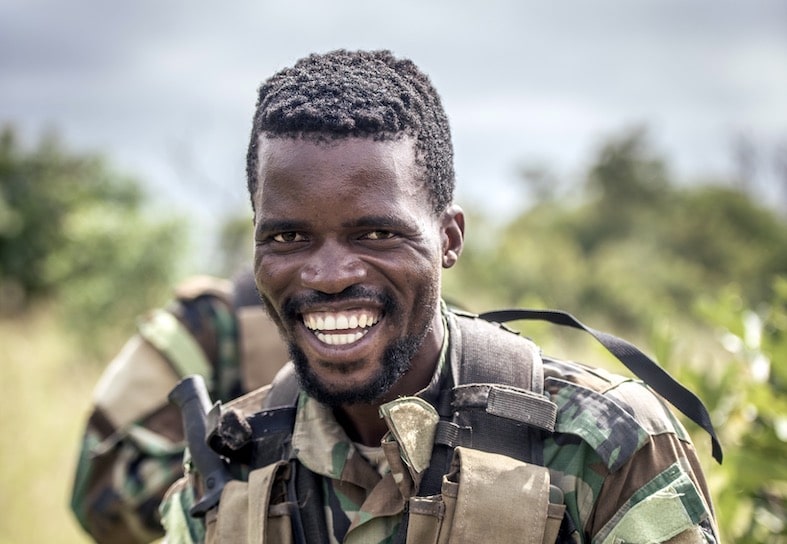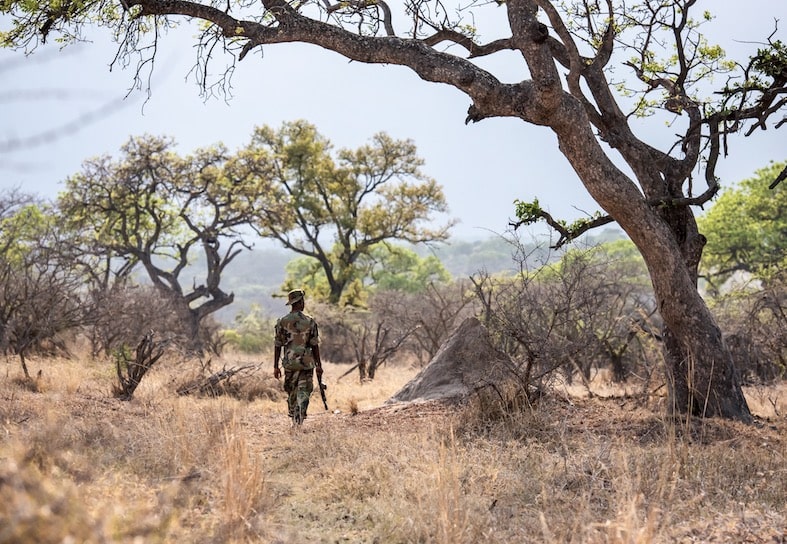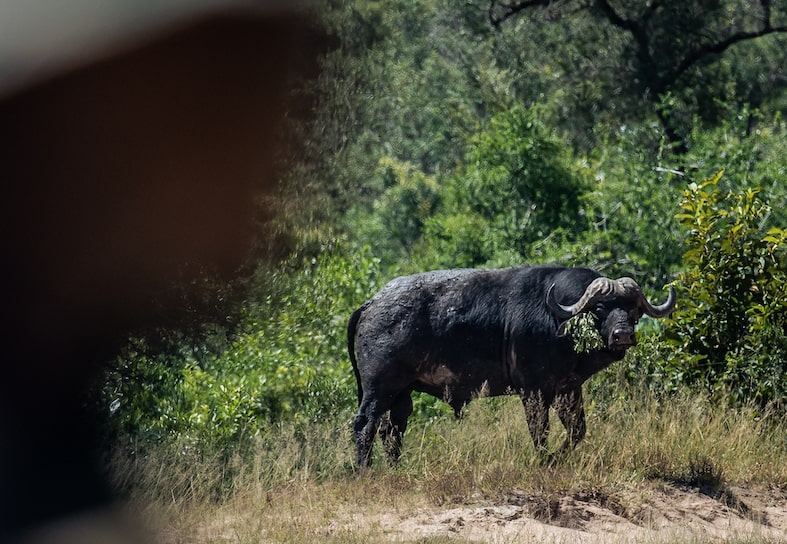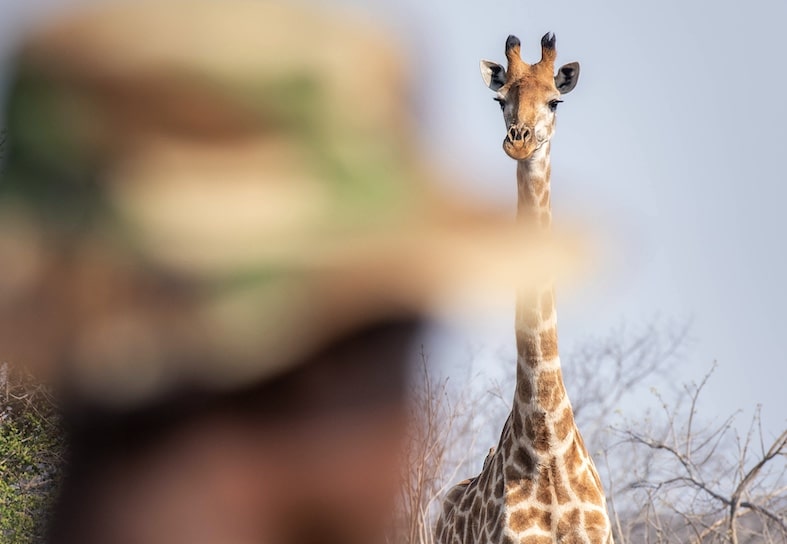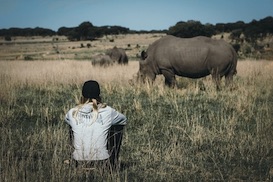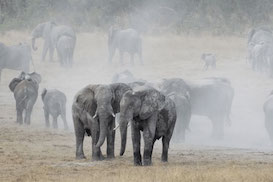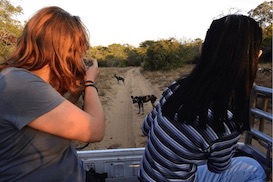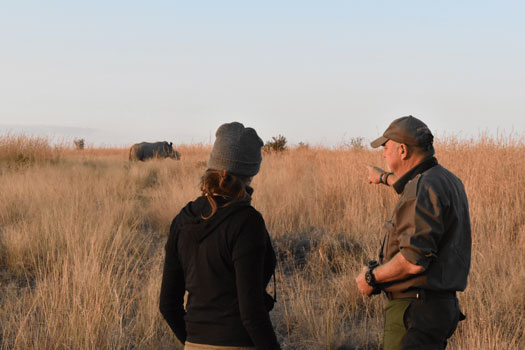Anti-Poaching Training Course
- join us on the frontline
SOUTH AFRICA
South Africa
6 weeks -
6 months
Set start dates
Up to 25 people
Age 18+
From $2,525
South Africa
6 weeks+
Set start dates
Set dates
Up to 25 people
Max 25
Age 18+
From $2,525
What's the course about?
One rhino is poached somewhere in the world every 16 hours. Despite poaching numbers decreasing, rhinos are still being lost at an alarming rate. The major cause of this mass extinction is poaching. Our anti-poaching training course has been running since 1992 and is a leader in anti-poaching employment in South Africa. Recruits come from diverse backgrounds and ethnic groups and you will learn to live with each other and work as a team in times of crisis.
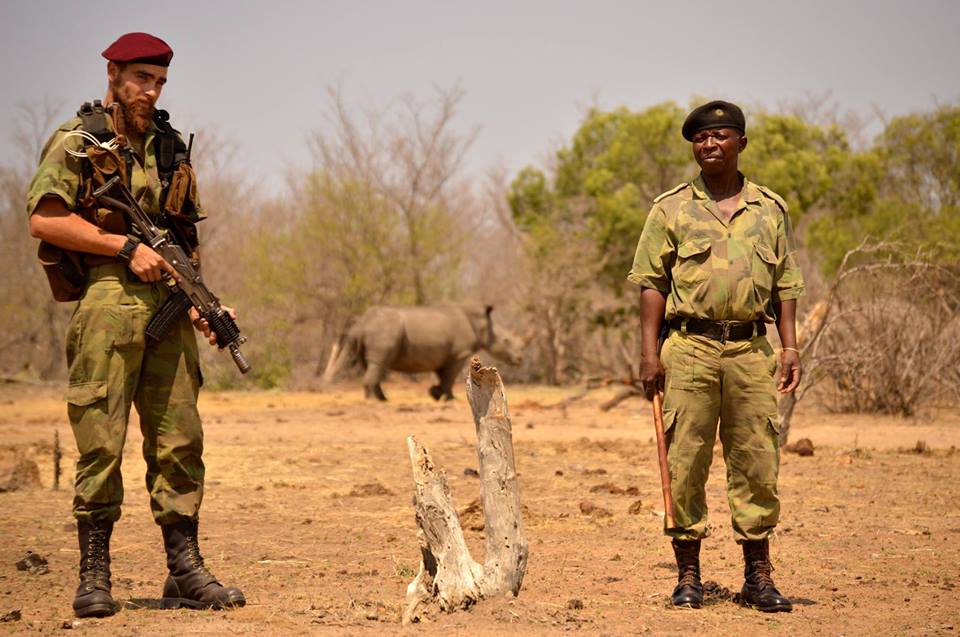
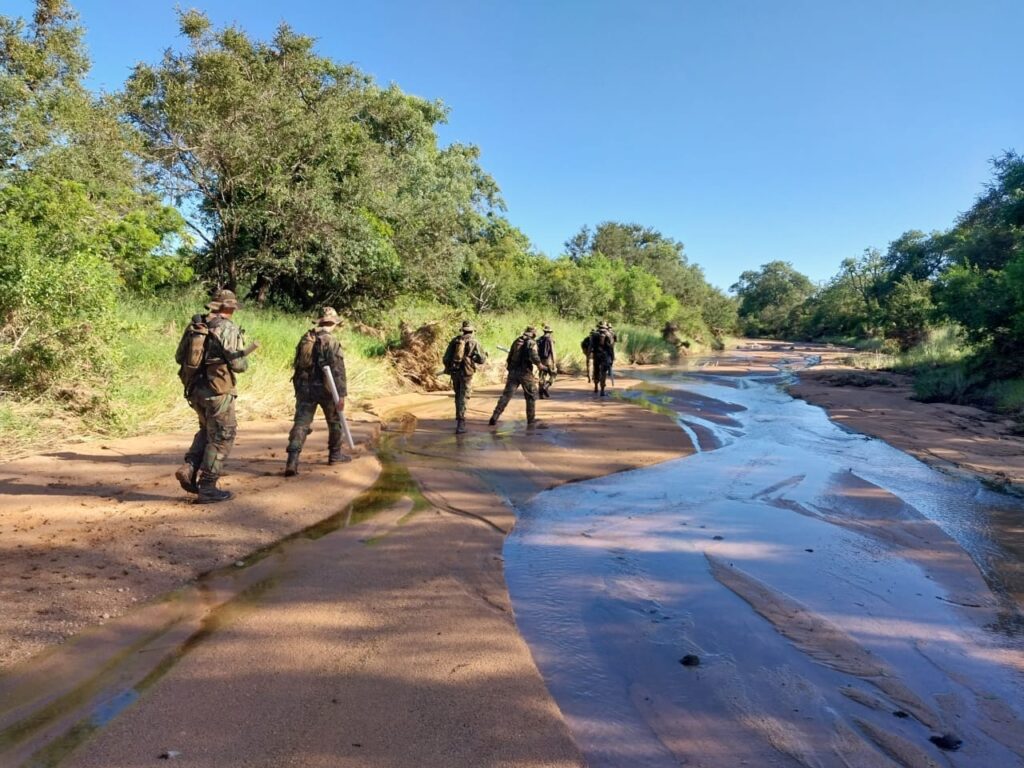
What's the role of a volunteer anti-poaching ranger?
The duty of an anti-poaching ranger is firstly to protect wildlife by preventing poaching and secondly to apprehend poachers. You are a visible presence to prevent and protect. This anti-poaching training course is not for the faint-hearted – you have to be fitter and stronger than the poacher you are after. It is a once-in-a-lifetime opportunity to work in the bush and operate on Big 5 reserves alongside permanent anti-poaching staff. If you are passionate about protecting Africa’s wildlife and willing to learn, this course is for you.
What will be covered in the course?
You will be trained to sleep out in a Big 5 area and to track, confront and convict armed poachers. The course will instil discipline from day one and teach counter-poaching tactics and teamwork. You will understand the reality of what it takes to be a wildlife guard and what sacrifices are made to protect Africa’s wildlife. You will develop a deep bond with Africa and its heritage and should share this knowledge with those who are unaware of what poaching and anti-poaching entail.
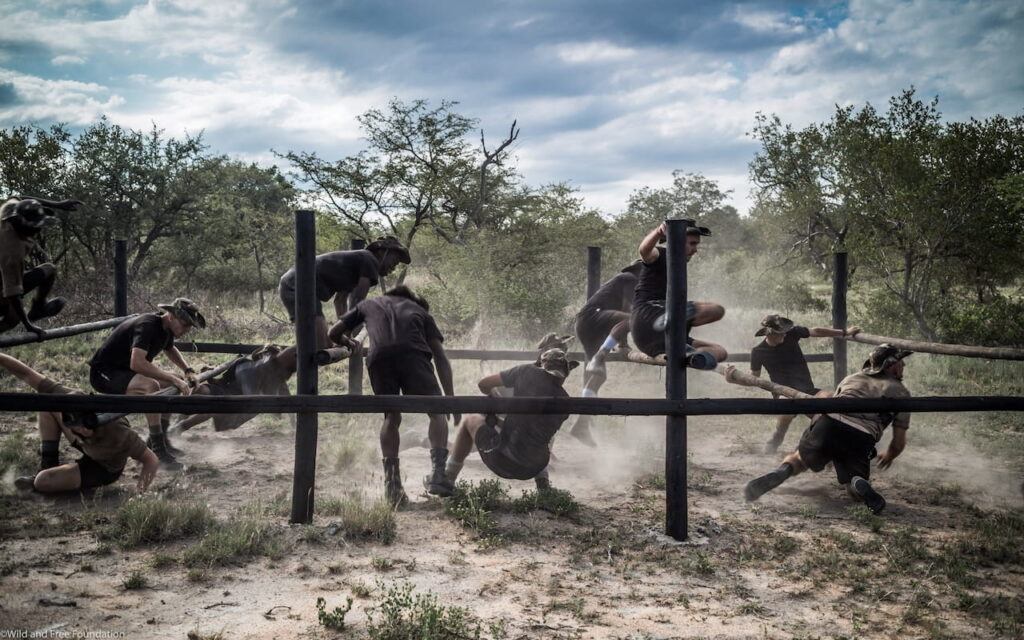
Project showreel
Project gallery
Anti-Poaching Training Course information
Minimum requirements
The course is open to males between the ages of 18-35 who have completed high school. If you are aged between 36 and 46 and in excellent physical shape, ideally also with a military background, you are also encouraged to apply. International students should also have a reasonable level of English, both speaking and understanding.
Team spirit and physical fitness is a prerequisite.
You have to be physically able and mentally disciplined to complete this course.
Acceptance will be following a telephone or online interview with one of the course instructors.
This is a full-time Anti-Poaching Course where you will live and learn alongside recruits from within South Africa and around the world.
Weeks 1 and 2: Foundation Course
This part of the course consists mainly of theoretical classroom work, but with some fieldwork, including basic tracking, drills and exercises.
You will also complete your accredited subjects during this phase: weapons competency for self-loading rifles, grade E for PSIRA registration, level 2 first aid and a reptile orientation course. This part of the programme is preparation for the Advanced Level Course and upon successful completion students will advance to the next phase.
Drills will occur every morning of your training and throughout the course. You will also have obstacle courses during most of these mornings, PT sessions, road runs and bush runs.
Despite this being the foundation course, it will still be physically demanding. Discipline, mental strength and physical fitness will be of the utmost importance to prepare you for the advanced level.
If you have had recent active military experience in some or all of the following skills, you may be exempted from the initial two weeks of training (this will be decided following a telephone interview):
- Intelligence
- Hand-to-hand combat
- Medics
- Weapons experts
Weeks 3-6: Advanced Course – compulsory regardless of any previous military experience
You have to be physically able and disciplined to complete this course. The Foundation Level Course will have prepared you to some extent for this phase but this phase of the Anti-Poaching Course is EXTREMELY challenging, both physically and mentally. However, with effort, a strong will and a good mindset you can succeed.
During these four weeks, you will learn how to set up camps in the bush, build bashers (temporary shelters), find water, and cook basic rations over an open fire. You will also learn to track humans and animals (including some of the Big 5) and identify animals, birds and trees with experienced instructors. Students stay in outdoor bashers and out in the field, eating basic rations. This will exert even the toughest recruits both mentally and physically – this phase is VERY different to the Foundation Course.
The courses strongly encourage team building. You will need to motivate team members to keep their spirits up and you will rely on others to support you.
During these four weeks, you will complete the following subjects:
- DNA autopsies,
- Ambushing,
- Night Operations,
- Tracking,
- Security Planning,
- Rhino Projects,
- Basic Survival,
- OP Posts and Observation,
- 7 Rules in the Bush,
- Setting up camps,
- Concealment
Certificates gained from the 6-week anti-poaching training course:
- Advanced Anti-Poaching Unit Course
- Accredited Grade E (PSIRA) (PSIRA security training is designed for individuals who are new to the security industry and do not have prior security experience).
- Accredited First Aid levels 1, 2, 3
- Reptile Orientation Course
- Accredited Weapons Competency: Self-Loading Rifle (SLR) for basic and business use (accredited by the Professional Firearms Training Council)
For students, this course is a once-in-a-lifetime opportunity to work in the bush and operate on Big 5 reserves alongside permanent anti-poaching staff. You may experience the unexpected, for example: dealing with harsh weather conditions, dangerous game and arresting poachers. If you are in the right place at the right time it may even be possible to observe and experience the darting of wild animals, collaring or horn treatment of rhinos or maybe the opposite: performing necropsies on a rhino carcass.
You will study, train and then work alongside South African recruits, permanent anti-poaching staff and other international volunteers. The teamwork that you will develop will sustain you through the challenging times and you will graduate as part of a solid and dedicated team – vital in the fight against poaching.
After you’ve successfully completed the 6-week training course you will have the option of volunteering on patrols for another 6 weeks or for up to 6 months. You may choose to join and assist the permanent two-man teams as a third pair of eyes and ears in the field. You will conduct patrols and work and live in the bush for up to 16 days at a time.
Under South Africa’s security regulations, a person without a valid South African ID may not work in the field and earn a salary or operate a weapon. However, you can be part of the team as a volunteer. Volunteers do not get paid for their service on the patrols. You will, however, be placed on patrols with Anti-Poaching Unit rangers with firearms.
Volunteer duties will be no different from any SA citizen or anti-poaching unit employee. You are treated no differently than any South African employee and you can be dismissed at any time if your contract and the rules and regulations are broken.
Accommodation and Meals – 6-week training course
On the 6-week course and for extensions of up to 6 months, the training course fees include accommodation at the training camp. This is a rustic camp with basic, shared accommodation and a communal, self-catering kitchen.
During the Foundation Anti-Poaching Training Course (weeks one and two of the six-week course) you will be housed on the project premises in dormitories and your meals will be prepared for you. You will receive three cooked meals per day over these two weeks.
During the Advanced Course (weeks 3-6), you will be able to stay at the camp in between patrols. This will be at no cost and your meals are also organised for you. Basic rations are provided while you are out on patrol and three meals per day while you are at the training camp.
Accommodation and Meals – working as a volunteer ranger
Once you have completed and passed your 6-week training course, you are responsible for your own food and patrol rations. You will learn how to cook, prepare rations and manage your food during the training course. There are two large supermarkets nearby and a very large cash and carry, so organising your rations and meals will not be an issue. During this time, accommodation is provided at the training camp when you are not out on patrol.
When can I join?
Courses are run through the year with set start dates.
2024 start dates
24th January 2024
24th April 2024
31st July 2024
30th October 2024
These course dates reflect the first day of the Foundation Course. The advanced course follows straight on.
2024 pricing – international volunteers
6-week anti-poaching training course only: $2,525
6-week anti-poaching training course + 6-week volunteer ranger (3 months in total): $2995
6-week anti-poaching training course + 4-month volunteer ranger (6 months in total): $3,595
Pricing for international volunteers is in USD.
It is possible to complete the 6-week training course and then return at a later date for your 3 or 6-month volunteer ranger placement.
2024 pricing – South African citizens
6-week anti-poaching training course: ZAR 47,500
6-week anti-poaching training course + 1-year working contract: ZAR 33,200
To be eligible for the 1 year working contract you must be a South African citizen with valid ID, aged 18-35, with no criminal record and of good fitness and health.
What’s included in the cost?
- Course fee: this goes straight to our project partner and contributes to their running costs – enabling them to continue funding their anti-poaching operations and support the recruitment and training of local anti-poaching scouts.
- Accommodation and three meals per day (see the accommodation tab for more details).
- Comprehensive instruction from highly qualified South African security and conservation experts.
- Certifications as outlined in the course overview.
What’s not included?
- Flights or travel to the project camp in South Africa.
- Visa fees (variable depending on nationality).
- Travel insurance (compulsory for international recruits).
- Personal expenses and meals as outlined in the Accommodation section.
- Pre and/or post-course accommodation (if required).
- Local SIM card and data/airtime bundles (optional).
- Administration fee ($40)
Background
The course was established in 1992, during a period of some of South Africa’s heaviest poaching. It provided the first private anti-poaching unit in South Africa. The programme was established with one aim in mind: to prevent the slaughter of wildlife. Today, the organisation boasts one of the largest private anti-poaching units in the country, covering more than 30 reserves and employing more than 400 people across South Africa.
Course Goals
The purpose of this Anti-Poaching Training Course is to provide specialist rural security services to conservation and wildlife areas in South Africa. Team spirit and personal discipline are the core of the business and are the main goals of the course.
Course leaders, students and staff all share a commitment towards the environment and to upholding and enforcing the laws laid down by the South African government.
Who can join the anti-poaching training course?
The course is open to male recruits aged between 18-35. If you are aged 36-46 and in excellent physical shape, ideally with a military background, please do also apply.
All applicants must have a good understanding of English and have completed Grade 10 / Year 11 (UK) / 10th Grade (US) of high school.
You should be of excellent fitness and mobility and be a determined and disciplined team player, passionate about wildlife.
What level of fitness is required?
- The average human walks at 4km per hour.
- A reasonable tracker can track at 6km per hour.
- A poacher can easily cover 10km per hour if he is aware that he might be caught.
You should be able to walk distances in the bush, carrying all your supplies, at a speed at least double the average walking pace.
The minimum recommended exercises are:
- 25 full push-ups
- 50 sit-ups
- 50 squats
- Undertake a 2.5km run in 15 minutes and a 5km run in 30 minutes
- Train to do a 5km fast walk carrying 25kg in a backpack
If you cannot do the above before you join, you will not be able to keep up with the course.
Drills will occur every morning of your training and throughout the course. You will also have obstacle courses during most of these mornings, PT sessions, road runs and bush runs. You will learn the true definition of Vasbyt!
Can I be employed as an anti-poaching ranger after this course?
Due to South Africa’s security regulations, a person without a valid South African ID may not work in the field and earn a salary or operate a weapon. However, you can be part of the team as a volunteer.
After your training is completed you may choose to join and assist our two-man teams as a third pair of eyes and ears in the field. You will conduct patrols and work and live in the bush for up to 16 days at a time. Volunteers are treated no differently than any South African employee and you can be dismissed at any time if your contract and the rules and regulations are broken.
What special equipment do I need to bring?
We will send you a full kit list once your application has been approved.
It is very important to limit the amount of different shoe treads in the areas you patrol and protect. This makes it much easier to identify a foreign track that does not belong there. Only two options of boots are allowed. You will either be issued with army surplus boots or you may purchase a pair of authorised Rogue boots at a discounted rate.
How many people will there be?
Groups are usually around 20-25 from all ethnic backgrounds and nationalities. Usually around 15-20% are international recruits.
Where is the course based?
The course is based in the eastern Limpopo region of South Africa.
When is the best time to come?
The climate of in the area is subtropical semi-arid, with a hot, quite rainy period from November to March and a relatively cool, dry period from May to August. Between September and April daytime temperatures average around 28 degrees during the day.
What animals will I encounter?
The areas you will train and patrol in will vary, but each are home to iconic African wildlife. Many reserves are Big 5 areas, containing lions, leopards, buffalo, elephants and rhinos.
Is food provided?
All meals and rations are provided during the 6-week training course. You will learn to cook, manage and plan meals. Once you have passed, if you choose to stay on and work as a volunteer ranger, you will need to organise your own food and ration supplies. Staff will organise trips to the large local supermarkets to resupply.
Do I get some time off?
Once the course is finished, you will join patrols which are usually 16 days on followed by 4 days off.
How much spending money should I bring?
We recommend having access to around R 800-R 1000 per week to cover food and sundries when you are not on patrol. There is access to several supermarkets from the camp and resupply transfers can easily be arranged with the project team. Visa and Mastercard are both accepted in large stores and ATMs are widely available to draw cash.
Do I need a visa?
Most nationalities can obtain a visitors visa on arrival in South Africa. This will give you 90 days in the country. If you decide to do the 6-month training course plus work experience, the project will assist in getting your visa extended. We recommend you have at least four blank pages in your passport, and it must be valid for at least 6 months (ideally a year) after your arrival date in South Africa. Please check your visitor’s visa eligibility prior to arrival.
What vaccinations do I need?
Please consult your GP or travel clinic for detailed medical advice.
Malaria – parts of the project are regarded as malaria areas, so we recommend you take suitable anti-malaria tablets over the course of your stay. Lariam is not allowed. Please consult your GP for guidance.
All volunteers should make sure their tetanus is up to date or have a booster if you aren’t sure.
Please visit this UK government website for more details.
Volunteer reviews
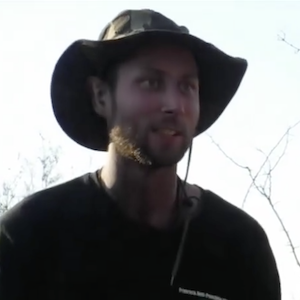

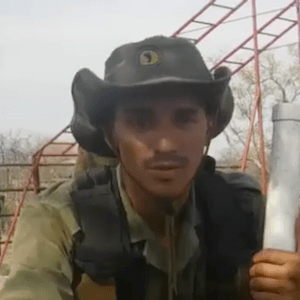
Other projects you might be interested in
Join a unique conservation programme, dedicated to the protection of the black rhino. Play a vital role in securing the future of these iconic animals.
From $950
1 - 12 weeks
Volunteer as a Field Assistant in two of Zimbabwe’s most magnificent national parks. A unique volunteer opportunity for a true wilderness experience.
From $1,795
2 weeks
Support conservation work to protect endangered species in South Africa. Monitor priority species including lion, leopard, cheetah, rhino and wild dog.
From $1,630
2 - 16 weeks
Volunteer with rhinos and get practical experience in anti-poaching techniques and wildlife conservation. Learn from South Africa’s most experienced conservationists.

